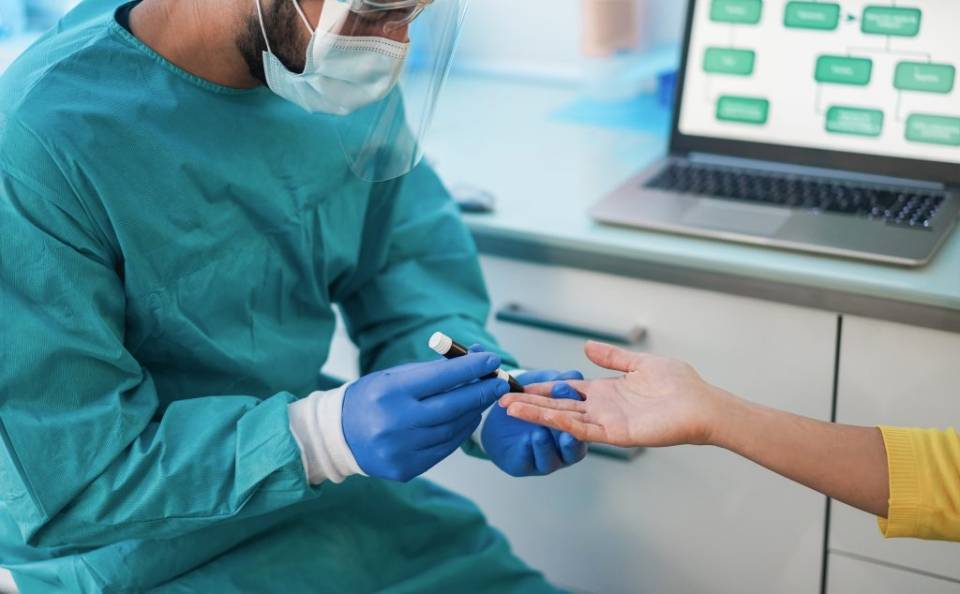17 June 2021
- What is it?
- Causes and risk factors
- Symptoms
- Diagnosis
- Treatment
- Living with the disease
- Progression of the disease
- Frequently Asked Questions
-
The disease at Clínic
-
Team and structure
Treating constipation
The main objective of treatment is to improve the patient’s satisfaction. As well as obtaining a greater number or quantity of bowel movements, the objective is to optimise the consistency and volume of the faeces. The aim is to ensure that the evacuation is complete, without making too much effort, and that other associated symptoms such as pain and abdominal distension disappear.
Treatment for constipation also includes non-pharmacological measures, drugs and other treatments reserved for more specific or serious situations.
Treatment of chronic constipation should be gradual and progressive. Initially, potentially treatable and/or reversible causes that may be triggering or worsening constipation, such as certain types of medications, should be identified and the possibility of discontinuing them considered.
Lifestyle and general measures

Adopting an appropriate posture during defecation. Raising the knees with the help of a stool may facilitate defecation in patients with symptoms of obstructive defecation (e.g. when painful, prolonged or there is a sensation of anal blockage or a need to manually remove stool).

Going to the bathroom at certain times. Preferably after meals or upon waking, when the urge to defecate is most intense. Avoid suppressing this urge as much as possible.

Avoiding a sedentary lifestyle. A sedentary lifestyle is associated with chronic constipation. Also, aerobic physical exercise has been shown to improve quality of life and constipation symptoms. The World Health Organisation (WHO) recommends at least 150 to 300 minutes of aerobic physical activity per week.

Water intake. Adequate water intake of around 2 litres per day is recommended. However, excessive water consumption has not been shown to improve constipation.

Dietary habits. Fibre provides numerous health benefits. It helps regulate bowel movements, thus improving constipation. The World Health Organisation (WHO) recommends a fibre intake of at least 25 grams per day. Foods with the highest fibre content are whole grains, legumes, vegetables, fruits and nuts. For example, the daily consumption of prunes or kiwi fruit has been shown to improve abdominal discomfort, stool hardness and increase bowel frequency. However, excessive fibre consumption (more than 30 g/day) does not improve constipation symptoms and, in some cases, can worsen abdominal discomfort and bloating.

Herbal products and infusions. Their laxative effect is achieved by irritating and damaging the colon, causing diarrhoea. Senna or cascara buckthorn are over-the-counter stimulant laxatives, available in herbal stores and supermarkets as infusions. However, their use can cause side effects, such as allergic reactions or fluid and electrolyte imbalances, so using them regularly is not recommended. If constipation persists after making dietary and lifestyle changes, you should see a doctor who may prescribe a laxative instead of using herbal products.
Drug treatment

Laxatives. These are the drugs of first choice when dietary and lifestyle changes fail. There is currently a wide range of treatment options. The most commonly used laxatives are osmotic laxatives, which increase bowel movements and improve stool consistency. These have a good safety profile and can be used in elderly, pregnant women or patients with chronic kidney disease or liver failure. Side effects with them are rare or infrequent, and they do not lose their effect with prolonged use (known as tachyphylaxis). Any laxative prescribed by a doctor should be used for 6 to 8 weeks to assess the response and determine its effectiveness. Prolonged or chronic use may be necessary in certain cases.

Enemas and suppositories. They can be used occasionally or as an alternative to oral laxatives when the latter are ineffective, especially in patients with reduced mobility. They are particularly useful in cases of faecal impaction and for patients with obstructive defecation.
Non-pharmacological treatment

Anorectal biofeedback. This is a behavioural training technique used in patients with chronic constipation due to a functional defecation disorder, previously diagnosed through anorectal manometry and a balloon expulsion test. The objective of this technique is to correct an inadequate defecation manoeuvre that causes symptoms of obstructive defecation, achieving a positive response rate of up to 70% in these patients.

Surgery. This is reserved for specific, carefully selected patients after previous treatments have failed. One group of patients who may benefit from surgery are those with obstructive defecation syndrome secondary to anatomical abnormalities of the pelvic floor, such as rectocele, enterocele or rectal prolapse. However, it is essential to first rule out concomitant functional defecation disorders and achieve adequate stool consistency and frequency. Patients are advised to use laxatives before surgery to prevent the recurrence of anatomical abnormalities.

Irrigació transanal. Recentment s' han comercialitzat dispositius que permeten l' evacuació del contingut intestinal mitjançant la introducció d' aigua a través d' una sonda rectal. A diferència dels ènecs tradicionals, aquests dispositius permeten introduir volums majors d' aigua, la qual cosa facilita el buidatge del còlon esquerre i no només del recte com fan els èoms clàssics. Aquests dispositius són útils per tractar l'estrenyiment crònic, les impactacions i la incontinència fecal secundària al sobreeiximent de les femtes. S'utilitzen habitualment en pacients amb malalties neurològiques i lesions medul·lars l'estrenyiment de les quals no ha respost al tractament farmacològic.
Substantiated information by:



Published: 21 July 2020
Updated: 24 July 2025
Subscribe
Receive the latest updates related to this content.
(*) Mandatory fields
Thank you for subscribing!
If this is the first time you subscribe you will receive a confirmation email, check your inbox
